Marjorie Perloff is the Sadie Dernham Patek Professor of Humanities at Stanford University. She is the author of The Futurist Moment and Radical Artifice and the coeditor of John Cage: Composed in America, all published by the University of Chicago Press.
The University of Chicago Press, Chicago 60637
The University of Chicago Press, Ltd., London
1996 by The University of Chicago
All rights reserved. Published 1996
Printed in the United States of America
05 04 03 02 01 00 99 98 97 96 2 3 4 5
ISBN: 0-226-66058-3 (cloth)
ISBN: 0-226-66060-5 (paper)
ISBN: 978-0-226-92486-1 (e-book)
Perloff, Marjorie.
Wittgensteins ladder : poetic language and the strangeness of the ordinary / Marjorie Perloff.
p. cm.
Includes bibliographical references and index.
1. Wittgenstein, Ludwig, 18891951Contributions in criticism. 2. LiteraturePhilosophy. 3. Criticism. I. Title.
PN49.P413 1996
809'.04dc20
95-47873
CIP
Portions of were published in Contemporary Literature 33, no. 2 (Summer 1992). Copyright 1992. Reprinted by permission of The University of Wisconsin.
 The paper used in this publication meets the minimum requirements of the American National Standard for Information SciencesPermanence of Paper for Printed Library Materials, ANSI Z39.48-1984.
The paper used in this publication meets the minimum requirements of the American National Standard for Information SciencesPermanence of Paper for Printed Library Materials, ANSI Z39.48-1984.
Wittgensteins Ladder
Poetic Language and the Strangeness of the Ordinary
Marjorie Perloff
The University of Chicago Press
Chicago and London
illustrations
abbreviations for works by Wittgenstein
BB
The Blue and Brown Booths, Preliminary Studies for the Philosophical Investigations, 2d. ed. (New York: Harper and Row, 1965).
CV
Culture and Value, ed. G. H. von Wright, in collaboration with Heikki Nyman; trans. Peter Winch (Chicago: University of Chicago Press, 1980).
LCA
Lectures and Conversations on Aesthetics, Psychology and Religious Belief, compiled from notes taken by Yorick Smythies, Rush Rhees, and James Taylor; ed. Cyril Barrett (Berkeley and Los Angeles: University of California Press, n.d.).
LEC1
Wittgensteins Lectures: Cambridge, 193032, from the notes of John King and Desmond Lee; ed. Desmond Lee (Chicago: University of Chicago Press, 1980).
LEC2
Wittgensteins Lectures: Cambridge, 19321935, from the Notes of Alice Ambrose and Margaret Macdonald; ed. Alice Ambrose (Chicago: University of Chicago Press, 1979).
NBK
Notebooks 19141916, 2d ed., ed. G. H. von Wright and G. E. M. Anscombe (1961; Chicago and London: University of Chicago Press, 1979).
OC
On Certainty, ed. G. E. M. Anscombe and G. H. von Wright; trans. Denis Paul and G. E. M. Anscombe (New York and London: Harper and Row, 1969).
PI
Philosophical Investigations, 3d ed., trans. G. E. M. Anscombe (New York: Macmillan, 1958).
PO
Philosophical Occasions 19121951, ed. James Klagge and Alfred Nordmann (Indianapolis and Cambridge: Hackett, 1993).
PR
Philosophical Remarks (Chicago: University of Chicago Press, 1975).
SCH
Schriften: Tractatus logico-philosophicus, Tagebcher 19141916; Philosophische Untersuchungen (Frankfurt: Suhrkamp, 1960).
T
Tractatus Logico-Philosophicus, trans. C. K. Ogden, with an introduction by Bertrand Russell (1922; London and New York: Routledge, 1988).
Z
Zettel, ed. G. E. M. Anscombe and G. H. von Wright, trans. G. E. M. Anscombe (Berkeley and Los Angeles: University of California Press, 1967).
preface
This book is probably more personal than any of my others. Not that I have written some sort of autobiographical memoir, but Wittgensteins Ladder does mark a return, however circuitously via Gertrude Stein and Samuel Beckett, and via American radical poetries and conceptual art of the late twentieth century, to the Vienna of my childhood, which was still in large measure Wittgensteins Vienna. My intellectual, upper-middle-class family was hardly in the league of the super-wealthy Wittgensteins, but Ludwigs second cousin Friedrich von Hayek was, like my father, Maximilian Mintz, a member of the so-called Geist Kreis, which met once a month to read work-in-progress to one another and counted among its members Eric Voegelin, Alfred Schtz, Felix Kaufmann, Emmanuel Winternitz, and Fritz Machlupall of whom were to make major names for themselves in various intellectual disciplines relating to philosophy.
Transported to the U.S. in 1938 as a refugee from Hitler, and growing up in very different circumstances in the Bronx, I wanted for a good part of my life to get away from the Germanic culture of those Austrian visitors who came for Jause (open-faced sandwiches, little cakes, coffee rather than cocktails) to our small apartment on Oxford Avenue in Riverdale. Indeed, my brother Walter and I rebelled against having to speak German at home, balked at having Schillers Wallenstein and Goethes Gtz von Berlichingen read to us by my great-grandmother, and when my grandmother took me to see my first opera, Lohengrin, when I was twelve, I was mortified because she spoke what seemed like very loud German on the subway. By the time we filed for our citizenship papers in 1944, I wanted nothing so much as to be a typical American teenager. I even changed my name from Gabriele (I had been named for the writer Gabriele von Blow) to Marjorie, which was the name of the most popular girl in my class at the Fieldston School.
When, after graduate school, I began to write about modern poetry, I chose subjects about as far removed from Wittgensteins Vienna (or even his Cambridge) as possible: the Anglo-Irish W. B. Yeats, the Mayflower screwball Robert Lowell, the Irish-American, Catholic, gay poet Frank OHara. It was not until the late seventies, when I was working on The Poetics of Indeterminacy: Rimbaud to Cage, that I began to take an interest in Wittgensteins Tractatus, and even then, the poet Joan Retallack, who wrote a long and telling review-essay on my book in conjunction with Cages own writings for Parnassus, pointed out that I had misunderstood the famous proposition #7, Whereof one cannot speak, thereof one must be silent. But having said this, Retallack (who had majored in philosophy) went on to suggest just how apropos Wittgensteins writings were to the concerns of Cage as of Gertrude Stein and other avant-gardists. And so she planted the seeds for an investigation I was to follow years later.
At the annual meeting of the Western Humanities Institute held at Berkeley in October 1984, Jerome J. McGann organized a session called The Idea of Poetry, the Poetry of Ideas. The speakers were David Antin, Charles Bernstein, and Catharine R. Stimpson. Stimpson spoke on Gertrude Steins language in relation to gender, emphasizing the inextricability of theory and practice in Steins work. Bernstein delivered Living Tissue/Dead Ideas, an eloquent attack on the then current orthodoxy of using literary texts as so many examples of literary theory. A great critic like Walter Benjamin, Bernstein argued, is himself primarily to be understood as a writer, the contradictions of whose style are not just to be explained away. When Living Tissues/Dead Ideas was published two years later in Bernsteins Contends Dream (Los Angeles: Sun & Moon, 1986), it appeared side by side with another essay called The Objects of Meaning: Reading [Stanley] Cavell Reading Wittgenstein, which can be read as a manifesto for the notion that the activity of knowing... has its meaning only in use in the context of a language (
Next page
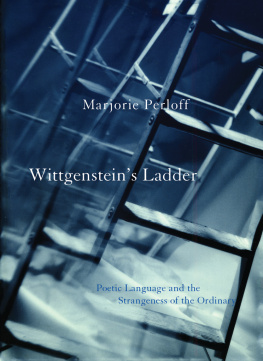

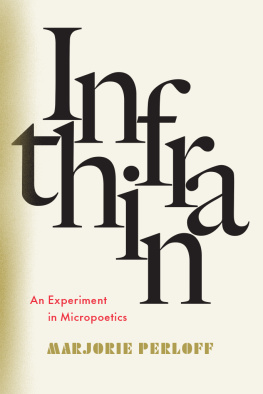


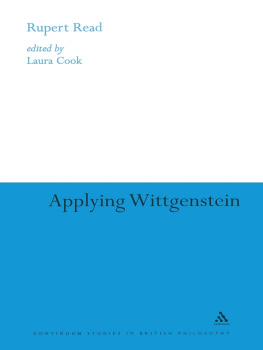
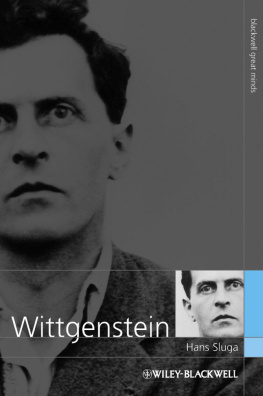
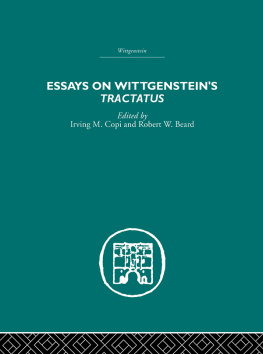
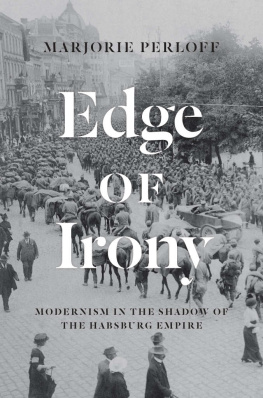
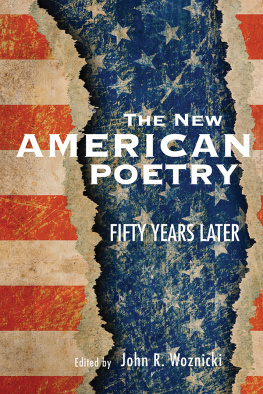
 The paper used in this publication meets the minimum requirements of the American National Standard for Information SciencesPermanence of Paper for Printed Library Materials, ANSI Z39.48-1984.
The paper used in this publication meets the minimum requirements of the American National Standard for Information SciencesPermanence of Paper for Printed Library Materials, ANSI Z39.48-1984.